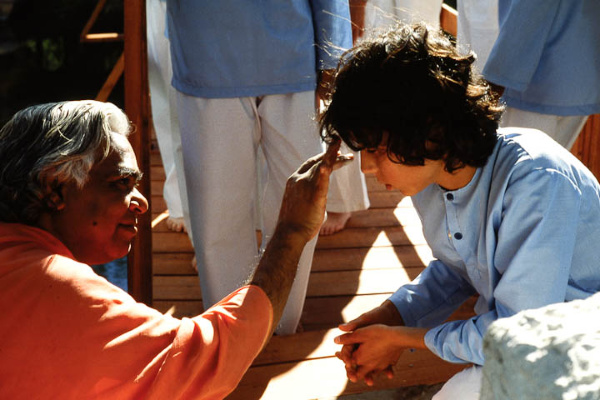“The law of karma states that every action brings about an equal and opposite reaction. Whatever is done to others will return to the doer in some form or other. Most people are continually creating new karmic situations. This is due to ignorance and its accompanying afflictions. Before the final emancipation, all karmic debts must be worked out whether, one decides do to so in the present life or leave this work for later lifetimes.
Karma is two things. It is the action you perform and it is its result: “My karma has brought all these problems to me”. But you also have purushartha, the action you perform through will power. Once an action is performed, you cannot change the result: you will reap the fruit. But you have full control over the action you are going to perform, now or in the future. The mistake you made in the past has put you in the painful condition you are now in. You know that if you do such and such an action, you are going to be punished. You are going to have pain. You can then avoid that action. You have control, full control over the actions you are going to perform. You are like a man who has arrows in his quiver. He has full control over the arrows. He can shoot anywhere he wants: right, left, above. Or he can just stop shooting and put the arrow back. But once the arrow has gone from the bow, he no longer has control. He cannot say, ‘Hey arrow! Don’t go that way. Go this way.’ Only as long as the action is not performed, as long as it exists only in the mind – ‘I’m going to do this or that’ – can you still control the action by stopping it. But once that action is performed you have no control over it. It generates reaction, karma.”
Vishnudevananda Upadesha
Teachings of Swami Vishnudevananda
Pages 81 and 101

